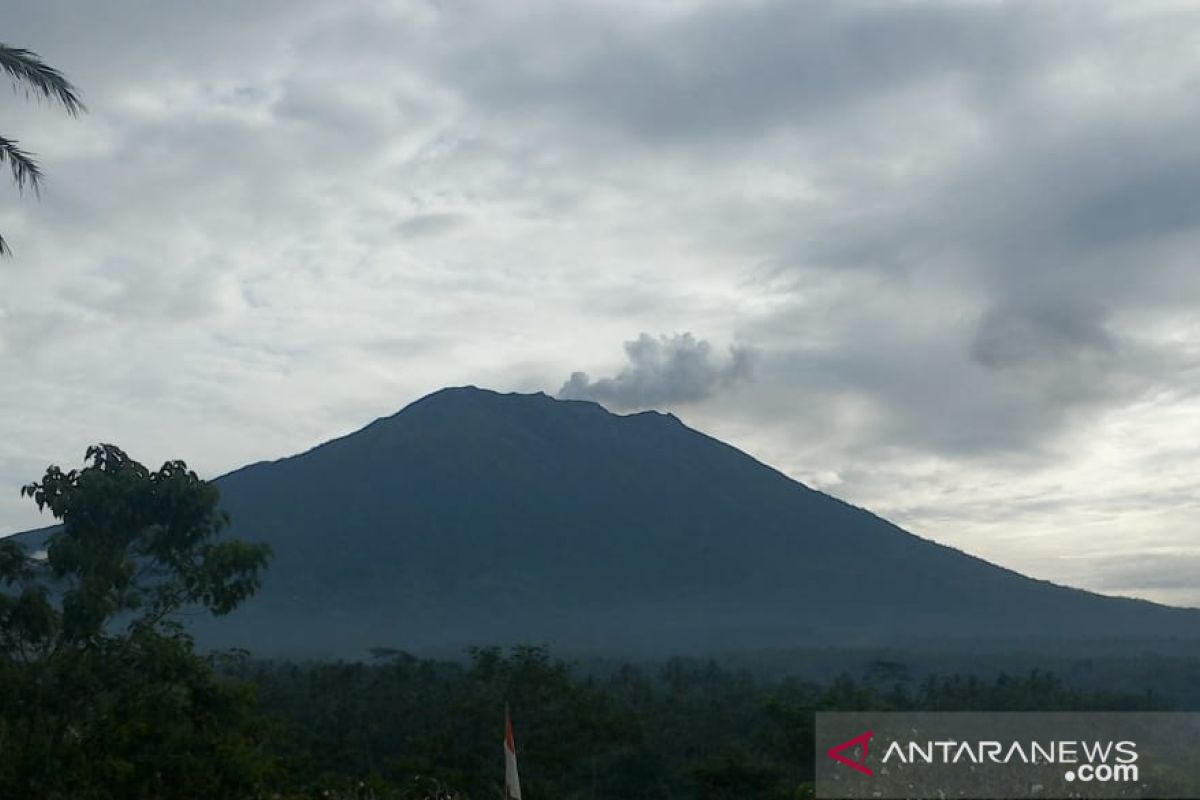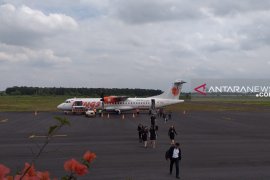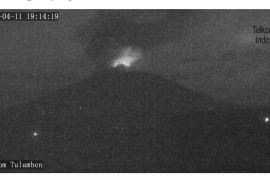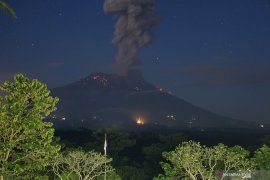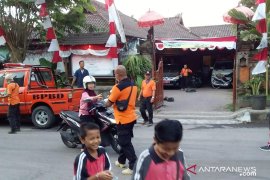Based on the results of a meeting, the Ngurah Rai Airport authorities decided that the airport must continue normal operations by taking into account all supporting data from all relevant stakeholdersDenpasar, Bali (ANTARA) - I Gusti Ngurah Rai International Airport in Bali continued its normal operations after Mount Agung in Karangasem District erupted early Sunday.
"Based on the results of a meeting, the Ngurah Rai Airport authorities decided that the airport must continue normal operations by taking into account all supporting data from all relevant stakeholders," chief of the airport's public relations Arie Ahsanurrohim said in Denpasar on Sunday.
Mount Agung again erupted on Sunday at 03.21 a.m. local time, sending a some 2,000-meter high flume of thick ash into the sky from its peak, which is some 5,142 meters above sea level.
Based on the result of a paper test conducted from 06.44 to 08.15 a.m. on Sunday, signs of very thin volcanic ash spread were found around the airport.
Later from 07.00 to 08.22 a.m. the LIDAR scan detected a spread of thin and uneven volcanic ash within a 0-1,500-meter radius of the airport at the altitude of 500 meters above land surface.
Arie said based on the result of aviation meteorological observation (METAR) conducted at 10.30 a.m. no signs of volcanic ash spread were found around the airport.
"The stakeholders will hold another meeting in case of significant change and discuss it comprehensively," he said.
Earlier, executive chief of the Bali Provincial Disaster Mitigation Agency (BPBD) I Made Rentin said a column of thick gray ash from the eruption of Mount Agung moved in the southwesterly direction. The eruption was recorded in the seismogram with a maximum amplitude of 22 mm and a duration of 2 minutes and 55 seconds. Mount Agung has repeatedly erupted in recent years. The volcano also erupted on April 4, 2019 when it sent a nearly two thousand-meter-high flume of thick ash into the air from its peak.
The authorities have maintained the volcano’s alert status at level three and declared a danger zone within a four-kilometer radius of the crater.
Translator: Ni Luh Rhismawati, Suharto
Editor: Rahmad Nasution
Copyright © ANTARA 2019
